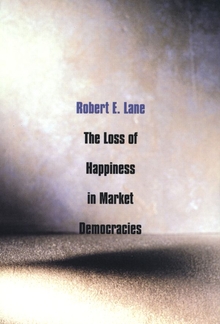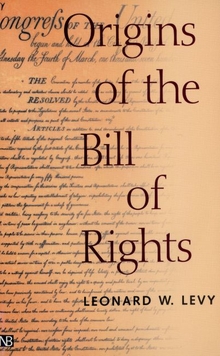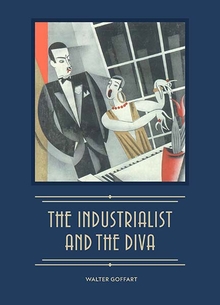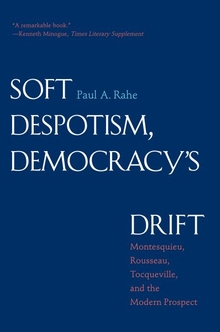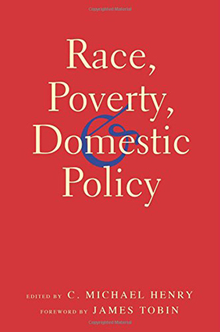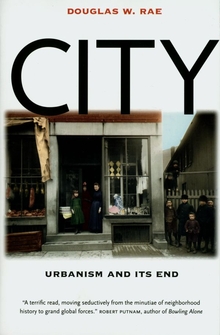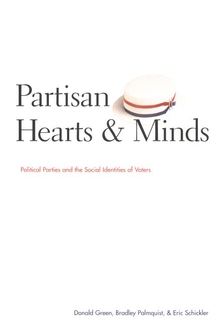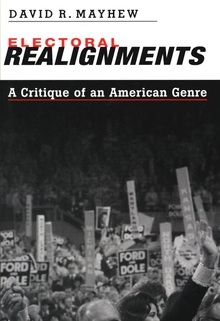The Loss of Happiness in Market Democracies
WARNING
You are viewing an older version of the Yalebooks website. Please visit out new website with more updated information and a better user experience: https://www.yalebooks.com
Robert E. Lane
Drawing on extensive research in such fields as quality of life, economics, politics, sociology, psychology, and biology, Robert E. Lane presents a challenging thesis. He shows that the main sources of well-being in advanced economies are friendships and a good family life and that, once one is beyond the poverty level, a larger income contributes almost nothing to happiness. In fact, as prosperity increases, there is a tragic erosion of family solidarity and community integration, and individuals become more and more distrustful of each other and their political institutions. Lane urges that we alter our priorities so that we increase our levels of companionship even at the risk of reducing our income.
“The day is near when people will discover the Sisyphusian nature of the pursuit of material goods as a source of lasting contentment and meaning. Professor Lane’s well written and documented book will be the text of the new recognition that all who are out of poverty must formulate other goals in life than the amassment of objects during the day and their consumption at night.”—Amitai Etzioni, author of The New Golden Rule
"The day is near when people will discover the Sisyphusian nature of the pursuit of material goods as a source of lasting contentment and meaning. Professor Lane’s well written and documented book will be the text of the new recognition that all who are out of poverty must formulate other goals in life than the amassment of objects during the day and their consumption at night."—Amitai Etzioni, author of The New Golden Rule
“A book of great importance for our time. Lane asks whether our most treasured institutions—market economies and democratic political systems—are good for subjective well-being. He approaches this question with a breadth of knowledge and scholarship that is difficult to match.”—David O. Sears, University of California, Los Angeles
"The first and most important thing to say is that Lane has taken up a problem of great importance and has analyzed it in a manner that only he can do, so that it is a book of great importance for our time. He has raised the most fundamental questions possible in social science, whether our most treasured institutions—market economies and democratic political systems—are good for the subjective well-being. Do they in fact play the role that all of us utilitarians have long assumed they do—providing the greatest good for the greatest number? This is a question that is increasingly being raised in the post-Marxist era and has engendered some quite lively debates in the social sciences, stimulated by Etzioni, Putnam, Sen, Sandel, and others. He approaches these questions with a breadth of knowledge and scholarship that it is difficult to imagine anyone else employing. He ranges easily across sociology, psychology, economics, philosophy, and of course, political science for his material. No one else has his capacity for broadly-based synthetic social science. But he always is able to deploy research results in the service of answering fundamental theoretical questions, as he has proven often in the past, most recently in The Market Experience. In the end the thesis is an important one: that market economies increase subjective well-being in less-developed countries because they provide prosperity and thus pull people out of the mires of poverty and oppression. But market economies begin to lose their marginal utility in industrialized nations because they do not necessarily provide the goods that increase well being, or if they do, only as incidentals (externalities). As alternative goods he devotes most of his attention to companionship, with some attention to the intrinsic satisfactions provided by work."—David O. Sears, Professor of Psychology and Political Science, UCLA
"For half a century Robert Lane has been one of the nation’s most thoughtful and creative political scientists, integrating the too—often separate fields of political psychology and political philosophy. This latest work poses big questions--why are so many of us unhappy and depressed these days? How are happiness, democracy, and the market related? What is the ultimate good for society? His answers are worth pondering."—Robert D. Putnam, Malkin Professor of Government and Public Policy, Harvard University
“For half a century Robert Lane has been one of the nation’s most thoughtful and creative political scientists. His latest work poses big questions—why are so many of us unhappy and depressed these days? How are happiness, democracy, and the market related? What is the ultimate good for society? His answers are worth pondering.”—Robert D. Putnam, Harvard University
“Lane, one of the most respected American political scientists, examines the question of why the increasing economic prosperity of the Western capitalist democracies is not producing a greater sense of social well-being. . . . Lane has written a scholarly book rather than just another ‘pop’ attack on consumer culture.”—Choice
“An important integration of political science, sociology, economics, and psychology.”—Future Survey
“Those who ponder the rationale of societal development should take the opportunity to read this remarkable treatise and learn from it.”—Peter Laslett, Population and Development Review
“In asking why marketing democracies are experiencing ‘growing unhappiness in the midst of increasing plenty’ Professor Lane has raised both an important and a timely question. The popular ‘malaise’ which he describes may well be considerably worsened by the events of this past September and by the nature of our response to them. This is a book which should be on the ‘required reading’ list both for students in the social and behavioral sciences and, perhaps even more to the point, of those who teach in these areas.”—Albert Somit, Distinguished service Professor Emeritus, Southern Illinois University
“This is a book of breathtakingly broad scholarship by a Renaissance thinker.”—David G. Myers, APA Review of Books
“This is a balanced, nuanced book that blends normative and empirical theory. . . . This imaginative, multidisciplinary contribution questions almost everyone’s presuppositions about a decent life.”—Conrad P. Waligorski, American Political Science Review
Publication Date: August 11, 2001
23 b/w illus.

